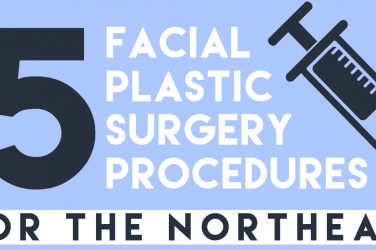The tremendous pressure that athletes face when it comes to excelling in competitive games compels some of them to abuse drugs. Training combined with the desire to surpass competitors overwhelms some athletes. Some athletes know that they need training, team approach, strength and dedication to excel. However, others use drugs to enhance their efforts, boost confidence, and cope with the associated stress.
Unfortunately, drug abuse leads to addiction that is not easy to recover from. In fact, the careers of some athletes have been ruined by drug addiction. Subsequently, such athletes have ended up in boredom, depression and even more serious addiction that is harder to recover from. However, it’s possible for athletes to recover from addiction and lead sober lives.
For athletes that have been used to fame, recovering from addiction requires specialized treatment program. Essentially, these individuals need confidential, private treatment for addiction that is designed to meet their specific needs. Such a program should target collegiate and professional athletes, both retired and active.
Drugs that Are Commonly Abused by Athletes
Stimulants like cocaine and amphetamines are a problem in the public health sector. However, research indicates that athletes are abusing these drugs at an alarming rate. According to this study, athletes abuse these drugs because they excite their central nervous system chemically.
Athletes abuse these drugs to minimize fatigue and enhance mental alertness. They also use them to boost aggression and energy. Some athletes take anabolic steroids to boost body weight and muscle mass while enhancing aggression levels.
Although there are legit medical uses of anabolic steroids, they should not be used to give athletes unfair advantages when it comes to sporting. Nevertheless, athletes abuse them in an attempt to boost strength and stamina.
Consequences of Drug Abuse among Athletes
Abusing drugs puts athletes at the risk of addiction. Although an athlete may successfully fight addiction, life after addiction is never the same as it was before addiction. These drugs may help athletes get ahead of others. However, they cause painful and distressing withdrawal symptoms especially when they are not used regularly.
Athletes that discontinue the use of these drugs experience fatigue, mood swings, steroids cravings, and insomnia. These withdrawal symptoms compel athletes to take the drugs even when they want to quit.
Anabolic steroids are known to stimulate testosterone hormone’s production in the body. As such, male athletes suffer from erectile dysfunction. Their testicles can become smaller while their breasts grow bigger.
On the other hand, female athletes’ voice can deepen while they grow hair on their bodies. Some of them miss their periods with estrogen levels getting lower. Their breasts can also shrink over time.
Severe drug addiction among athletes is characterized by continued drug abuse even when psychological and physical harm is clearly visible. Athletes are unable to end the addiction because of the violent reaction that the body shows towards discontinuation of the use of the drugs.
How Athletes Can Recover From Addiction
Athletes with drug abuse problem need a properly designed recovery plan for addiction. That’s because there are types of therapy that are unique to athletes that are addicted to drugs. Additionally, the initial treatment stage is determined by the individual circumstances of an athlete.
Usually, the first step is generally comprehensive evaluation of the athlete. This enables the treatment team to determine the best treatment approach for the athlete. Essentially, a confidential assessment is conducted to determine whether the athlete has medical problems in addition to addiction.
Psychological evaluation determines whether the athlete has co-occurring disorders. The treatment team analyzes the results of this evaluation and works with the athlete to come up with an ideal treatment plan. This ensures that the recovery needs of the athlete are met in every step.
Medical detoxification is also involved in the treatment plan. This gives the body of the athlete a safe environment to wean off the addictive drugs without being pressured to take more addictive substance or relapsing.
It’s important to note that detoxification can cause nausea, vomiting, anxiety, depression, diarrhea, insomnia, and other withdrawal symptoms. This happens with cases of severe addiction. However, the medical team administers anticonvulsant and anti-anxiety medication that eases severe withdrawal symptoms.
Medical detoxification alone may not yield significant results in terms of the recovering drug addicts’ behavior. As such, the recovering athlete needs therapy and counseling to address mental damage caused by addiction. What’s more, athletes are trained to deal with future cravings for the addictive substances.
Staying Sober
Recovery from drug addiction is a lifelong process. As such, when an athlete is discharged from the treatment center, their family and the treatment team determines the best way to continue the recovery journey. Some athletes prefer going through this transition via a sober living center. This enables them to practice the sobriety skills that they acquired while undergoing treatment. It also enables them to gradually adapt to sober living.
Some athletes feel confident after making progress in the treatment facility. However, they opt to continue recovery in rigorous, intensive outpatient centers. These enter an intensive outpatient program or a partial hospitalization program. Both programs allow the athletes a chance to continue their therapy and slowly reintegrate back to their communities. However, some athletes go to their homes where they continue the recovery journey with outpatient therapy, community resources, and sober coach.
The Bottom Line
Athletes are among the most popular and highest ranking celebrities in the modern culture. However, their stardom level comes with a deeper risk. Many elite athletes become drug addicts after taking drugs consistently to overcome pain and maintain performance. Others take addictive drugs trying to get an unfair competitive advantage in their fields. That’s because most of them value performance and prizes more than physical and mental health. Unfortunately, this leads to addiction. If treatment for addiction is not sought, it ends up ruining the career of the athletes. In some cases, addiction leads to depression and other conditions that threaten the life of the athletes. Nevertheless, athletes can recover from addiction and stay sober. With specialized addiction treatment programs, athletes can beat addiction safely and go back to sober living.
About the Author
Phyllis Baker is a healthy lifestyle blogger. Phyllis has a huge specter of interest, but currently she focuses on the addiction recovery treatment for athletes.







